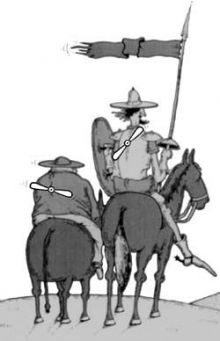“Corruption is a real human need that cannot be regarded as a psychological anomaly,” says Serhiy Maksymenko, director of the Kostiuk Institute of Psychology. Corruption is simply a desire to live better, which in our fellow countrymen is transformed into this ugly phenomenon. The scientist believes that in order to get rid of bribery in this country, it is necessary to subject the consciousness of bureaucrats and law enforcers to mass psychological influence and to instill in the minds of all those who deal with corruption in one way or another the notion that a bribe taker is a sick individual whose dangerous propensities should not be encouraged.
The All-Ukraine Civic Association “Committee for Combating Corruption in State Power and Law Enforcement Agencies, Prosecutorial Offices, and Courts” seeks to deal with the psychological correction of the Ukrainian population. According to committee chairman Eduard Yefimenko, the motive behind the creation of his organization is the fact that today, despite the new government’s intention to wage a ruthless struggle against corruption and to create a favorable business climate, nothing is actually being done.
The committee intends to assist both law enforcement agencies (simultaneously verifying them for bribery) and the president, who is still haunted by suspicions about corruption in his milieu. Yefimenko says that they will “raise the masses” and “make a samurai out of the weakest businessman.” It remains to be seen whether this metamorphosis will be popular, considering the fact that, as the committee chairman alleges,” business is being destroyed” and there are enough suicides, even among businessmen.
Meanwhile, the anticorruption champions are firm in their resolve. They believe that psychological help is the best means and practically a panacea for combating bribery. They are prepared to convince everyone of this. Of course, they have a great many serious ideas. So, it is perfectly clear that until the government, particularly its individual members, set about uprooting corruption, business will remain in the shadows. Granted, a number of bureaucrats are resisting this because they are loath to block illicit channels of income for themselves.
The newly established organization is planning to set up branches in every region in order to hammer it into local business people’s heads how damaging bribe-giving is and to help them kick the habit. If any bureaucrats demand a bribe, the organization must be alerted and it will then proceed to exert its influence on the guilty parties.
Undoubtedly, creating an anticorruption climate in this country is an important and crucial project. However, what method of psychological influence the committee will use is anyone’s guess — even the committee’s. When The Day questioned committee representatives at the press conference about means and methods to achieve this, they had no clear-cut answers and restricted themselves to general phrases, referring to close cooperation with a psychology institute and law enforcement authorities. When we asked them to specify the forces on which the committee is counting when it will be contacting parliament and law enforcement authorities, they replied that “there are also honest people there and we’re counting on their support.” This leaves one wondering why all those honest people have done nothing so far and have waited for this committee to explain that corruption is evil.
Yefimenko says that businessmen have nowhere to go with their complaints, as the prosecutorial offices, the SBU, and courts of law turn a deaf ear to them. At the same time, the committee is counting on these agencies’ support. Isn’t this a contradiction? It is possible that the voice of business, corrected by psychologists, will become stronger and will be heard by those who are currently paying no heed. Nevertheless, the committee is relying mostly on psychological correction. One thing needs to be explained: will a psychologist be assigned to every corruptionist, doling out occasional enlightenment, or will such psychological correction be conducted in the form of group therapy or even televised seances?
Meanwhile, in devising their undoubtedly noble project, the new anticorruption champions once again remind us of the perennial truth that the more things change, the more they remain the same. In his time the unforgettable Leonid Kuchma, to whom the creation of the system of corruption in all echelons of power is now traditionally ascribed, won the presidential campaign through anticorruption slogans. His experience was subsequently mastered creatively by Viktor Yushchenko, who had to dismiss his comrades in arms only nine months after his inauguration because of accusations of corruption. In the meantime, Mykola Azarov, the former head of the State Tax Service of Ukraine, spent unknown sums of money to create the All-Ukraine Anticorruption Forum, which may still exist. Naturally, all their failures are connected to the fact that psychologists and psychotherapists were not part of the anti-corruption struggle. Now we have seen the light at the end of the corruption tunnel, and the samurai spirit will guide us out of it. The unforgettable creator of Socialist Realism would declare, “I don’t believe you.” This was precisely the reaction of journalists, who wasted their time talking to these contemporary utopians.







